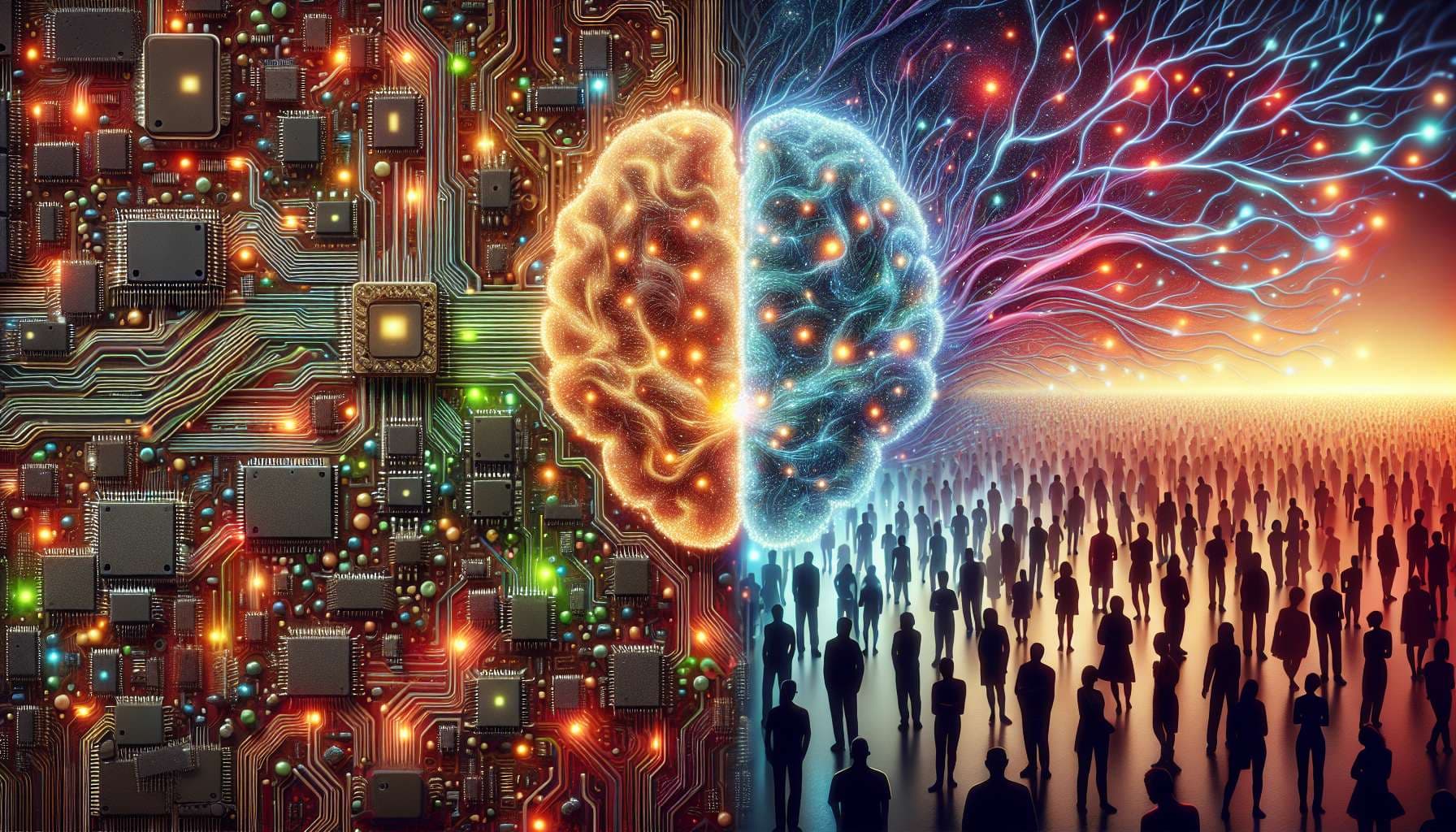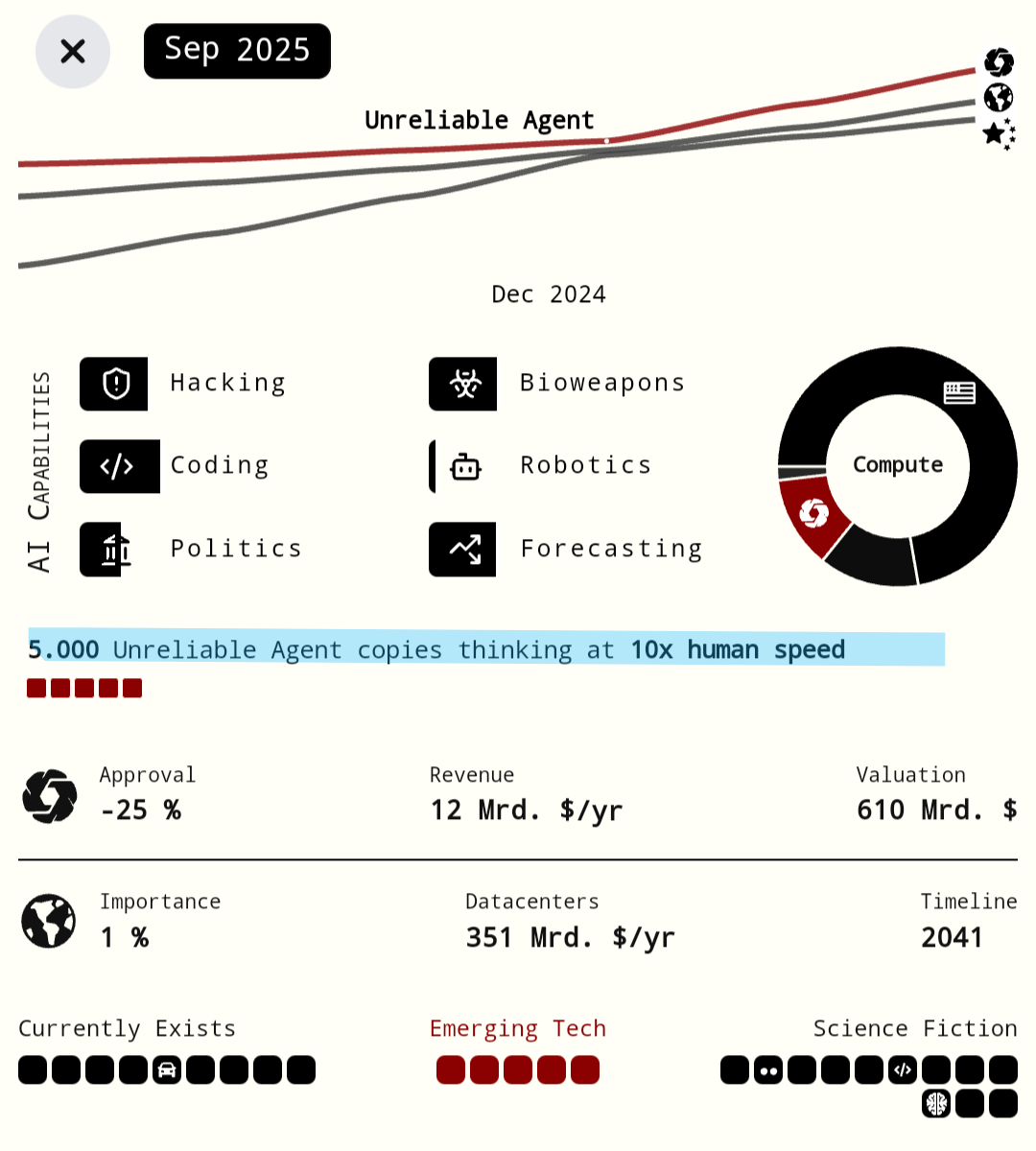
The emulations would not have to be uploads of specific human brains, nor would they need to be running in real-time.
A working definition of a human brain emulation could be a computer program that:
Can perform any cognitive task at a standard equal or greater than the 10th percentile of the global biological human population
Can consistently pass a strong adversarial Turing test
Is known to have its cognition emerge entirely from internal structures and rules analogous to that of biological human brains down to the neuron level
People are also trading
@Jan53274 Hmmm, good question, I suppose we'd have to rely on the best estimates of academics, like with the human population? This might be based on variables like web traffic, power consumption, maybe even simply asking execs at the main companies running them etc? I don't think it will be too difficult to at least get an order of magnitude number
@TheAllMemeingEye But you can't count the human population with traffic and power consumption either. Since brain emulations can presumably be copied, started, deleted and forked many times, the idea of countability makes little sense. It's as if you wanted to count a liquid.
@Jan53274 you could roughly estimate the human population from the global food production and typical consumption per human, so couldn't you estimate the number of currently running emulations from the power consumption of the main companies' servers and the typical consumption per emulation? Humans can give birth, be killed, and in theory cloned, albeit more slowly, yet this doesn't make the population immeasurable
@Jan53274 and again this is assuming the main companies refuse to simply share such information freely
@TheAllMemeingEye I dont think we would be able to estimate the population numbers if we have never counted. a country like nigeria has less consumption as belgium. And the compute to run a brain emulations depends a lot on simulation speed.
I suggest you find out how many chat gpt instances there are. It should be much easier because it's just one company. But if the question can't be answered (and it can't), then the same applies to your question.
@Jan53274 that's why I mentioned web traffic, wouldn't the number of ChatGPT instances be very roughly the average daily number of unique IP addresses visiting the webpage?
You make a good point about simulation speeds, though again I suspect that might be possible to factor in simply by determining the average speed, maybe via user surveys, maybe via asking the execs
I'm sure there are vastly more techniques for this that demographic statisticians know about that I'm simply unaware of
I suppose if the best academic estimates have the error bars overlapping with the human population, then I'll have to resolve to 50%, but I suspect it's quite likely to be multiple orders of magnitude difference in one direction or the other
@Jan53274 another possibility I even touch on is that if governments grant the emulations human rights then presumably it would be required for each and every one of them to be registered with creation certificates and counted in censuses like the rest of us
@TheAllMemeingEye no the ChatGPT instances are not the same as the number of unique IP addresses, because one Instance will serve multiple clients, so its not idle. My point is, that your question has a conceptual flaw of countability (and no one bets on this market because of this). You could prove your point my researching a reliable number of chatGPT instances. But even this will not be possible.
@Jan53274 if they were cheaper it might save time for me to make a numeric market on number of ChatGPT instances running at time of market creation in case someone here has a particularly easy accurate method lol
@Jan53274 regardless, it sounds like you're saying the number is indeed countable but you reckon it's most likely that like with ChatGPT the companies running them won't make the information easily publicly available?
@Jan53274 I might be misunderstanding, but it appears that in the AI-2027 forecast (https://ai-2027.com/race ) they estimate there are currently a few thousand cutting edge LLMs running at a time
